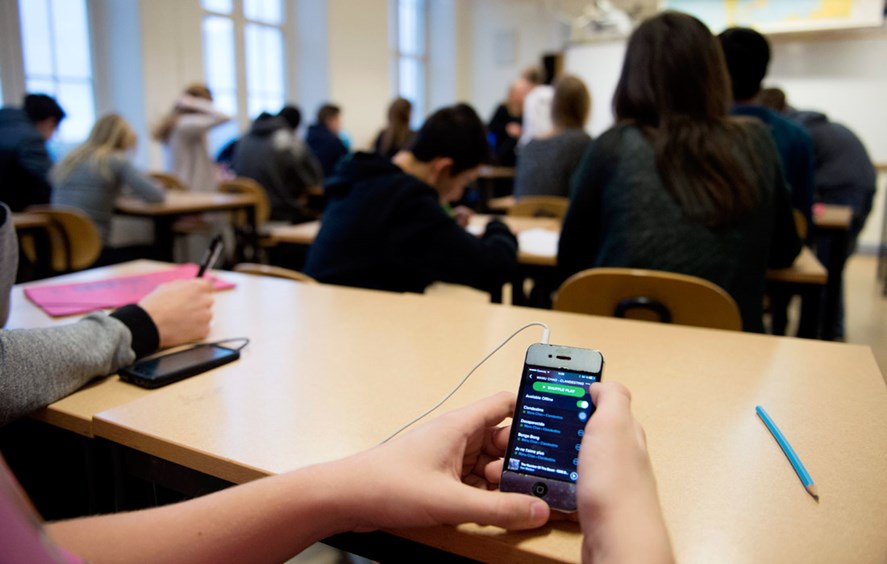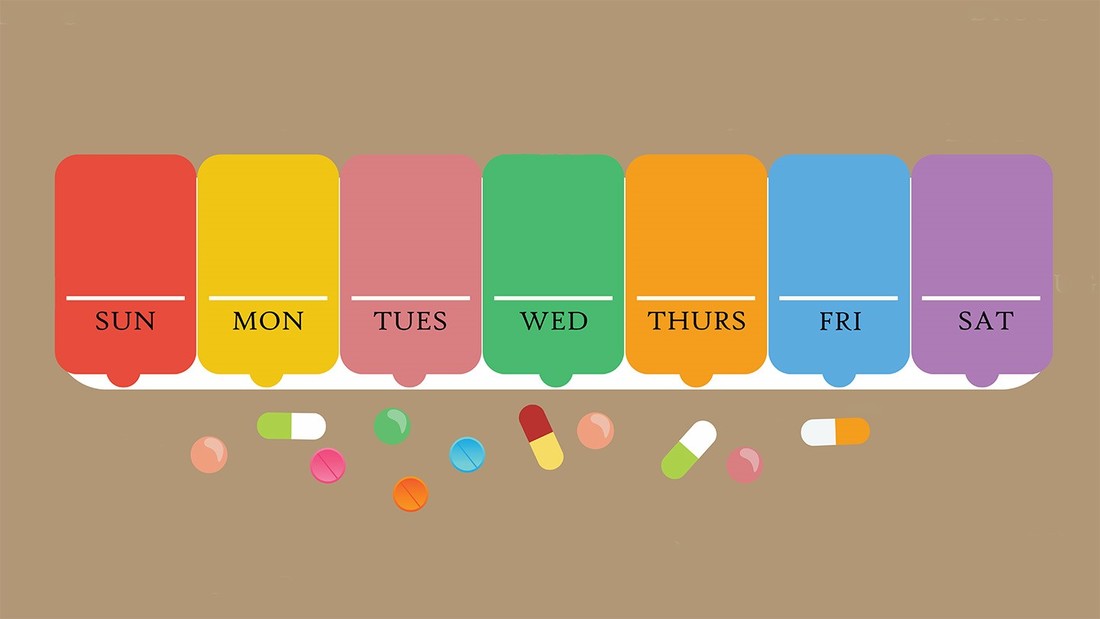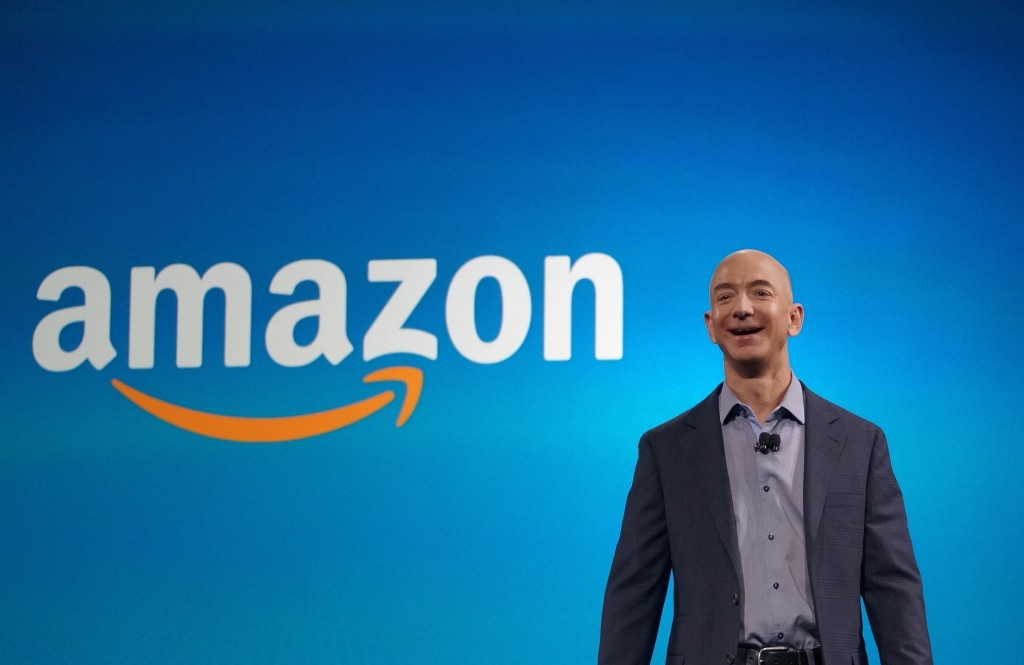|
I spent this past summer traveling around several countries in western Europe. I spent hours at a time on trains listening to Audible books. On some days, I literally spent over eight hours listening to audiobooks like Why the West Rules - for Now that span over 25 hours in total length. That sort of attention span was quite easy to maintain. For the most part, it was effortless. I had nothing else to do, but stare out the windows of the train at stunning scenery or try to nap when tired.
The previous summer, I spent most of my time at home while my wife was back in California with friends and family. Summers at home can be similar to train traveling in that when you live overseas and work at an international school, most people you know are gone and there simply isn’t much to do. During that time, I also read for hours at a time, but because I had the internet and a laptop, I was also able to write several thousand words per day as well. Since these long hours of concentration were able to be sustained two summers in a row, back to back, I’ve noticed this year that about two months into the school year my ability to concentrate starts eroding. My attention span seems to evaporate as school gets into full-swing. I don’t think that this same experience two years in a row is a coincidence. I’m beginning to think that school itself is corrosive of attention. I first noticed this a couple of weeks ago when I had some time to catch up on reading and, instead of opening a long book, decided to open up several tabs and check various feeds. Checking these can be done quickly, in bite-sized chunks, and a small sense of accomplishment can be had because something is finished in its entirety. Why might school bias us toward these types of activities instead of the longer, book-length type activities? Because everything is done in 10-80 minute blocks with small time remainders. We often find ourselves with five minutes to spare, or 25 minutes to spare between blocks of school activities. What can be done, both in the sense of “doing” and “completion” that done implies, in those short periods of time? In the world of the internet, we can consume little chunks of media. These provide us with both the sense of doing something and of finishing something and therefore leaves us feeling good. Starting a chapter that might take an hour to finish, only to stop ten minutes later is frustrating to the point of irritation. The alternative of doing nothing in those small blocks is available, but this often leaves us feeling unproductive, as though we “wasted time”, something we are trained to disdain from early childhood in a world that values productivity. All of this leaves me with the impression that the time structure of school is actually causing most of the attentional problems so many adults love to blame on digital devices and social media. Hardly a day goes by without me seeing something posted about the ill-effects these are having on children, but what if we’re wrong? What if rather than the devices and media being bad for our children, it’s the frenetic schedules and activity switching we force upon them? What if the device and media usage is actually just a coping mechanism, a way for kids who don’t understand what is happening to take some control back over their lives and a sense of accomplishment and productivity? There is a chance that we have this all backwards, that digital tools aren’t destroying attention and rewiring brains, but acting as forms of escapism and self-medication in a system that constantly scrambles kids’ attention and rarely leaves them feeling done or complete with anything. Attention requires self-control and this is rewarded when we accomplish something at the end. However, most classes are just revolving blocks of attention with little reward, besides perhaps a “B” grade every couple of weeks. I know that personally, after just two months of being back on a school schedule, I find myself using the same tools I used all summer for totally different purposes. Clearly, my ability to focus and concentrate didn’t change because of the access to digital tools - what changed was my submersion into a schedule that suddenly required 20 different activities a day in short timeframes with quick task-switching. When given the time, space, and ability to breathe, I can turn my concentration back on without a problem, but when squeezed, it goes out the window. Perhaps if we want kids to demonstrate extended attention and concentration, we should just give the time to do so, with projects that have clearly felt rewards at the end. The subjective reward is important. Even if the end of sustained attention is an “A” on some test, it will only be psychologically rewarding if the student cares to begin with. That’s why kids, just like adults, can devote hours of attention to other non-school projects like improving sporting ability or playing video games. The end comes with a clear accomplishment that is subjectively rewarding. If I can have my attention quickly eroded for structural reasons, even when being paid within that structure, then it’s no wonder kids are struggling. Maybe we ought to stop blaming everyone but ourselves and think about how we can support them, both in system structures and in finding work that is subjectively interesting and results in a sense of accomplishment at its end. Then, perhaps, students won’t be using all their incredible tools to escape, but to create and produce projects of meaning that just might amaze us adults as well.
1 Comment
Kwame Anthony Appiah writes in The Ethics of Identity, It’s true that we fail to treat others with dignity when we insist on regarding what they take to be free actions as caused. Tell somebody, “Adjust your meds,” in the course of a disagreement, and you’ll rarely find your suggestion taken as benevolent. And yet one reason people go to shrinks— or, elsewhere in the world, to oracles and witch doctors— is to uncover supposedly hidden causes of their actions. Which is just to say that, in our actual lives, we aren’t confined to any one standpoint, any one purpose. (Kindle Locations 1451-1455) The above passage highlights an important point. It’s impossible to distinguish what’s best for a person when viewed from two different perspectives. Best is entirely dependent on unity of purpose. The answer changes when viewed from a first-person or third-person frame of reference. What happens when everyone is on drugs though - when everyone needs to adjust their meds? Who is to say what’s best in a conversation among drug users?
All of us are born with different hormone levels, which are then affected and changed via environment over the course of our development, and to which we then add drugs of various sorts - caffeine, antidepressants, hallucinogens, etc. The most clear-eyed amongst us would still find themselves in the position of the above person telling others to, “Adjust your meds,” even when objectively warranted. And yet, that objective warrant is only objective because of the particular cocktail of chemicals occurring in that clear-eyed person’s head. Would it still be warranted if Clear Eyes were the only clear-eyed person in society? Wouldn’t Clear Eyes then begin to look like the Blind? Imagine a society where everyone took heroin. They didn’t just have access to it, but actually all took it. All the time. Would what’s best for that society in any way be similar to what’s best for a society that didn’t take heroin? It’s hard to imagine that the “what’s best” answer would overlap entirely. I could imagine it overlapping very little. This obviously implies that any best will be a “local max”, to steal from the math lexicon, rather than a “global max”. Which begs the question? If what’s best is a local max, any argument about the best ought to be relegated to arguing over which neighborhood we wish to be parked in first and foremost. This requires a somewhat universalist, “meta-best” approach to questions. We can’t simply ask what is best for our current situation because the best that we can do in our current situation may look nothing like the best we would do if our situation changed to the one we most wanted to work towards. Simply put, we need to reflect on the variety of drugs available to us, choose the ones we’d like to be on, and then figure out what’s best given our decisions. I just finished Robot-Proof, a newly released book by the president of Northeastern University on his vision for education in a future with AI. He concludes the book by writing,
The arrival of brilliant machines conclusively dispels the notion that a remunerative career is predicated on the study of an applied, “practical” subject. Going forward, machines will perform much of the work that was once the concern of these subjects, such as the simple analysis and application of facts to situations, or the management of data. Instead, the jobs of the future will demand the higher-order cognitive abilities and skills that are often associated with a liberal arts education, and that are pointedly inculcated through an education in humanics. As discussed throughout this book, the roles that human beings fill will be largely concerned with creativity. (Kindle Locations 2666-2671) I agree that it makes less and less sense for humans to compete with machines on the basis of intelligence. Machines continue to conquer areas we felt were far away from their capabilities and they’re only getting better. I disagree that humans will fill the role of creatives. To see why, an earlier passage in the book is helpful, The most popular TED (Technology, Entertainment, Design) Talk of all time is Sir Ken Robinson’s “Do Schools Kill Creativity?” recorded in 2006.11 In it, he famously argues that creativity, which he defines as “the process of having original ideas that have value,” is as important to today’s children as literacy. However, by stigmatizing failure and wrong answers in school, we train children to stifle it. “We don’t grow into creativity,” says Robinson. “We grow out of it, or rather we get educated out of it.” (Kindle Locations 1113-1117) Creativity The above is problematic. I really like Ken Robinson, but he simultaneously defines creativity as, “original ideas that have value,” and in the same breath states that kids, “get educated out of it.” This is asinine. I’ve never met a child that truly had an original idea of value. When was the last time the Nobel Prize committee awarded the prize in chemistry or physics to a kindergartener? Never. Because original ideas of value are extremely hard to generate and take expertise and luck. By recognizing this, it makes even less sense to continue to hang our future hats on the idea that creativity will be our saving grace against machines in becoming “robot-proof”. According to the world’s foremost expert on expertise, Anders Ericsson, the bottleneck of expertise is factual knowledge. You simply have to a know a lot of information before we can call you an expert and that takes time. It’s also what allows an expert to recognize differences in various problems and prescribe specific solutions that might work based on context. This begs the question, “Who is likely to have more factual knowledge in the future, machines or humans?” I’d bet it’s the machines. In fact, solutions to complex problems could be as simple as accessing data, generating 50 million arbitrary solutions, modeling them, and running algorithms to solve them. Save the best solutions and iterate. In this sense, machines would be highly creative, not from any mystical “human-ness” they have, but just from the nature of their astounding processing capability. It’s no surprise that some of the world’s most intelligent people have also been our most creative people when using Robinson’s definition because once we understand the interdependence it becomes obvious that true creativity requires massive intelligence and knowledge, plus luck. I see no future where computers don’t continue to outstrip us on the main ingredients in that recipe, which leads us to the real problem - value. Value As machines continue to eat up economic value around the world, humans are left with less ability to compete on that metric. We are simply running out of real estate when it comes to economic value produced by humans. Of course, the Bill Gates and Jeff Bezos of the world continue to be competitive, but their employees much less so. The title of this article is a direct repurposing of Samuel Huntington’s book title The Clash of Civilizations and the Remaking of World Order. He was attempting to capture how global politics and international relations were changing. He saw this as the most pressing issue at the time he was writing it. Now, it seems that we are struggling to figure out how to value human worth. We are using an old metric that doesn’t seem to quite fit anymore and probably won’t fit again. That metric is economic value. For several hundred years, economic value has more or less reigned supreme in how we value our fellow humans. The more productive one was, the more wealth one created, and the higher living standards and quality of life became. It still feels somewhat right to inordinately value people that brought us world changing innovations like the steam engine, electricity, plumbing, flight, the internet, and the variety of communications tools we use today. However, productive value isn’t the only value, others include justice, dignity, hedonic pleasure. There are still others such as the way a mother values her child, completely unrelated to economic value. It’s predicated on love and leads to caring. To care about something is to attach importance to it, to attach meaning and value, to believe it matters. We are going to face a choice, continue using a bad metric for the current day or elevate a new one. We seem to be partly heading in that direction already. We don’t just value Gates for his economic contributions to the world, but also his philanthropic contributions. While it’s impossible to ignore his economic value, his philanthropic value is what sets him apart from the Wall Street bankers that Main Street loves to hate. His love shows that he cares and that display of compassion is what we value. He seems genuinely aware that his success is almost entirely a product of luck and therefore spreads it to others. It would seem to me that as economic value loses worth as a metric for humans and the world becomes more abundant than any other time in history, the best value of human worth will be the extent of one’s caring relationships. We will find worth, dignity, and meaning to the extent that we have caring relationships. After all, mothers don’t lose sleep over their self-worth while holding their beloved children, providing them with love and warmth. Their sense of place in the world is secure because of the value and meaning these mother-child relationships of care bring, not because of the economic value they add. Many of our largest problems will continue around this clash of values, whether it be in education (what should we teach?), economics (how much are the rich entitled to their wealth?), or politics (should we allow migrants into our country if they only have “low-skills”?). In fifty years, it would be wonderful to see us judging the value of fellow humans and nations not by their income or GDP, but the degree to which they care for others. We desperately need a new metric because we simply can’t compete with machines for productivity. However, we can forever value the worth of humans based on their ability to care for others. The question, "How do we add value to the world?" is an important one. We have options and some are better than others. This means we also have a choice. We get to decide how we identify human worth. Do we want to live in a world where fewer and fewer humans have worth using a metric of economic value or do we want to elevate the importance of caring, justice, dignity, and love as metrics of human worth? I know my preferred answer. $90.7 billion. That is Bezos’ net worth as of July 27, 2017, according to CNBC.com. According to UK’s Independent, that’s up $17.4 billion from last year. The majority of his wealth comes from his 80 million shares of Amazon, so it’s likely his wealth will continue increasing and pass the $100 billion mark.
In June, he made a request for ideas regarding a philanthropy strategy on Twitter. He stated he is interested in “the right now”. But as Quartz wrote in 2014, “Amazon has also been criticized for the low wages it pays to employees for the ‘soul crushing experience’ of manning its warehouses. And the company has one of the highest staff turnover rates in the tech business.” So, why not give to his employees? They currently have about 350,000 global employees, not including seasonal or temporary workers. If Bezos reaches the $100 billion mark, that would be the equivalent of roughly $285 thousand per employee. If that seems too generous, giving each $100 thousand would still leave $65 billion. That is life-changing money for most people. That is money that will be used to boost the economy with more spending and investments. Money for homes and education. Money for retirement or medical bills. And it’s not like the money isn’t deserved. Amazon isn’t Amazon if those 350,000 employees didn’t work there. So it seems if one is looking to make immediate impact “right now” and one has an extraordinary amount of wealth that is only possible because of the employees one pays very little to generate that wealth, then one could simply show appreciation via increased pay or gifting stock ownership. An act such as this shouldn’t even be considered philanthropy, simply ethical business. Businesses aren’t made via entrepreneurship alone. They’re made with labor as well. If the entrepreneur has so much money he literally doesn’t know what to do with it, then simply stop thinking of labor as resource inputs and start thinking of labor as human beings who have worked, earned, and deserve a share of the profit just as much as the entrepreneur whose idea kickstarted the organization. I walk into a gym as a personal trainer for groups of adults. I get roughly 24 adults per group and regardless of their lifestyles, choices, or desires I attempt to make them able to meet specified standards. The standards are ten unassisted pull-ups, 30 push ups, squatting twice their bodyweight on a barbell, running a marathon, and being able to sprint 100 meters in 12 seconds. Their sex, age, income, current diet, and physical background has no bearing on the standards. I see them two to three times per week for a year and a half, with three weeks of for the holidays and six weeks off for summer.
Does anyone believe I will be successful? The scenario is ridiculous. Yet how different is it from what we expect teachers to do with a class of students? I walk into a classroom as a teacher for groups of seventeen to eighteen year olds. I get roughly 24 students per group and regardless of their lifestyles, choices, or desires I attempt to make them able to meet specified standards. The standards are in six subjects related to essay writing, mathematical problem solving, historical thinking, scientific experimentation, language acquisition, and arts. Their social background, IQ, income, current reading habits, and knowledge background has no bearing on the standards. I see them two to three times per week for a year and a half, with three weeks of for the holidays and six weeks off for summer. I don’t see how this scenario is any less ridiculous. Capitalism has been the most successful economic system to date. With the advent of the Industrial Revolution and the rapid increase of productivity that accompanied it, standards of living changed dramatically.
Some major side effects of this organization of production was the shuttling of rural people into urban settings, self-employment becoming mainly replaced by wage labor, and economies of scale creating large businesses that essentially run as private governments. Most of these effects of the Industrial Revolution and organizing for increased productivity also happen to lead to the devaluing of the individual. Workers are seen as replaceable. Their voices are muted as decisions get made above them with little to no voice in what happens. Nearly all aspects of life become controlled by others: when one wakes up, how long one works, when one uses the restroom, how work is done, and what work is finished in what order. In addition, capitalist societies largely function on consumption. All of these workers need to be consuming the product of their labor or it collapses. This directly leads to economies doing better when each person buys their own house, their own car, their own furniture and fixtures, and their own hobby goods and service. Both the production and consumption in capitalist societies have the unfortunate upshot that most people are alienated in their work and isolated in their lives. They become nameless and faceless “labor” and “households”. It’s hard to imagine throwing away our current standards of living and starting anew though. No one really wants to have less access to entertainment, less variety of goods and services, and less security - financially, physically, or emotionally. This means the economic system is more or less treated as sacrosanct and off-limits. If the economic system can’t or isn’t to be used for creative expression and self-realization, then it seems understandable that the political arena is where people might turn. I believe that is exactly what’s happening. Identity politics is on the rise, not just because of oppressive forces that marginalize groups through the use of power and privilege, but also because people need an outlet for their “selves”. People need an area of their lives where they matter, not just their productivity and consumption. It seems an urgent and frantic grasp at meaning, a reassertion of our place in the world, a chance to be recognized. If this hypothesis is at all correct then I think identity politics is here to stay for quite a while. Capitalism does not appear on the verge of allowing laborers to live lives of free expression and dignified autonomy, where a personal Twitter account doesn’t end in a call for resignation. Instead, we are likely to see more fervent identity politics in which people can gain their sense of belonging, purpose, and relation to the world through the groups they identify with. I personally don’t see this route ending well. As Mark Lilla has recently written, identity politics is the left’s version of Reaganism, where individualism is what matters most, not the common good or citizenship. It results in the fracturing of political groups, not the construction of them, and while identity politics may be resulting in groups attacking groups at the moment, the only clear direction is complete individualization in which my identity is totally unique and I have no common ground with you, the other. Ironically, this only leads to the same place as capitalism with the isolation of each person from all the rest. It seems an intractable problem at the moment, solving these economic and political glitches. However, I do believe there are solutions. Martha Nussbaum has written extensively on the need to discuss and work toward universal human values and Kwame Anthony Appiah has written on the need for cosmopolitanism in the face of isolated multiculturalism. I support everyone’s right to be unique, to self-express freely, and live as they please, but it must go hand-in-hand with recognition that we do belong to a common humanity. I worry very much that identity politics erases that connection in much the same way that many argue, myself included, capitalism does. Perhaps it is fitting to end with a quote from Amartya Sen, “The hope of harmony in the contemporary world lies to a great extent in a clearer understanding of the pluralities of human identity, and in the appreciation that they cut across each other and work against sharp separation along one single hardened impenetrable division.” |
Archives
November 2017
|






 RSS Feed
RSS Feed